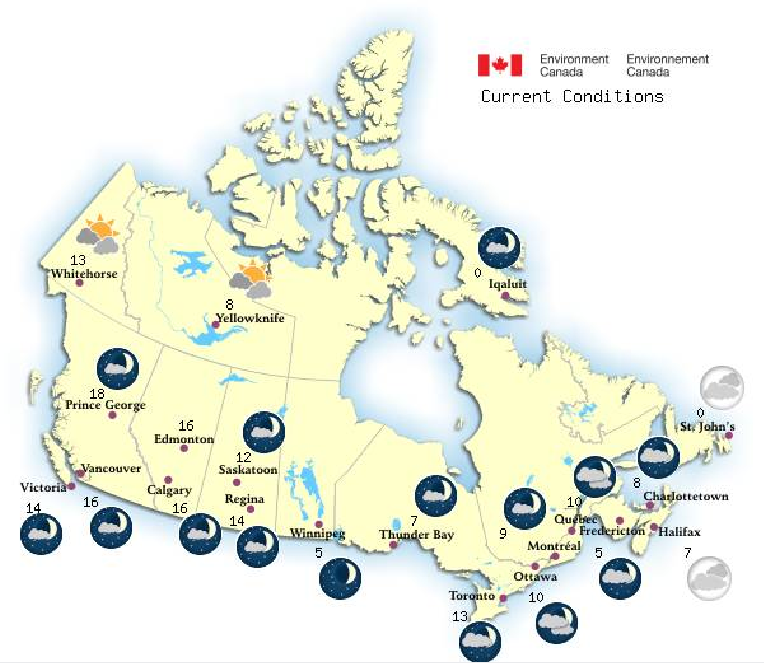Quote:
Originally Posted by acottawa

It is certainly plausible, but I have yet to see a scientific explanation that this year’s combination of factors (unusually cold winter, unusually high snowfall, unusually wet spring) is related to climate change. Maybe it is, but it is ridiculous to state that every instance of bad weather is because of climate change.
Weather ≠ Climate
|
Weather is a snapshot, so to speak, an instance of what the current climate is. If weather in eastern Canada skews to be colder and wetter it could be a sign of more colder wetter things to come in the future.
It's interesting to see how the Capital cities of Canada's northern territories matched up to Capital cities in southern Canada in this last month of May 2019.
Average day time high in Whitehorse was most similar to the average high in Toronto for month of May for example, average high in Yellowknife was closest matched up to Charlottetown, PEI and Iqaluit's average high was closest matched up to somewhere like Stjohns' Newfoundland & Labrador for day time highs in May.
In fact some of the last temperature readings on Friday evening in the last hours of May of 2019 exemplifies perfectly the entire month's Canadian climate in a nut shell.

Meanwhile, it has been very dry conditions in Western Canada. Alberta forest fires appear to be a very similar circumstance to the forest fires in Saskatchewan everyone probably vividly remembers back in 2015 when over 13,000 Saskatchewan residents were evacuated due to fires.
https://www.cbc.ca/news/canada/saska...uees-1.3139554